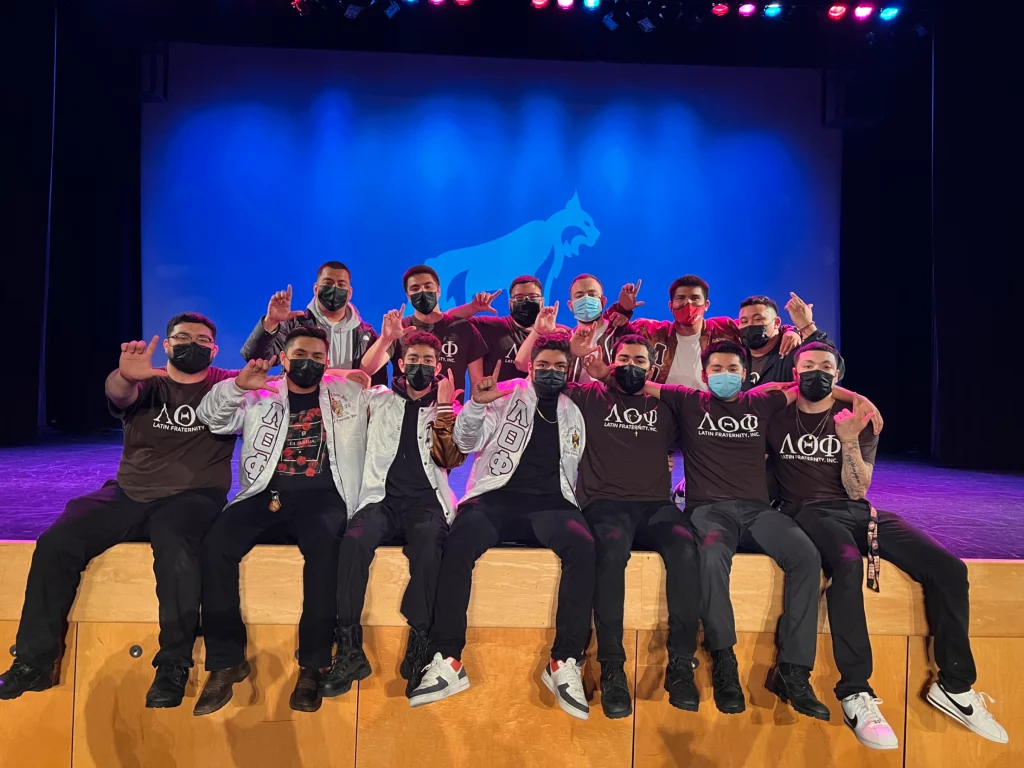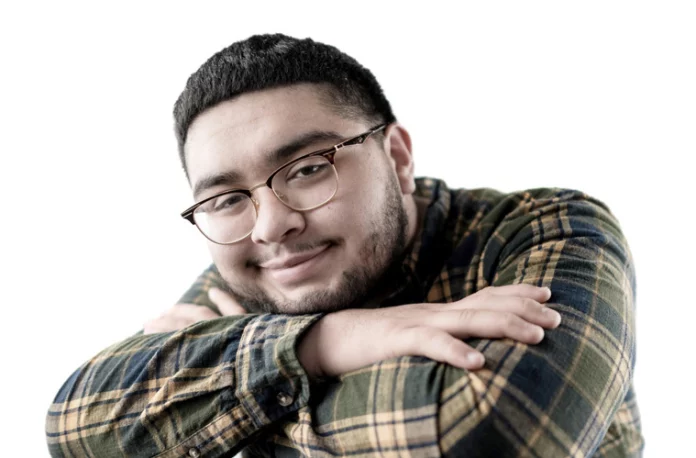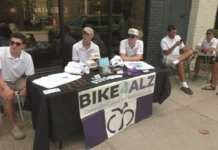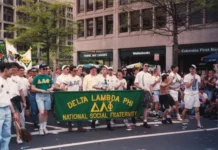More than 23,000 age out of the nation’s foster system annually—less than 3 percent of whom will earn a college degree in their lifetime. This is one of four profiles celebrating students in the Promoting Achievement Through Hope (PATH) Scholars program, each of whom is reversing that narrative with the support of staff and their peers. All of the profiles can be accessed in our introductory story.
The moment buzzed with excitement for Sal Hernandez Rodriguez.
In a few days, the 17-year-old former foster youth would begin his first year of college, a dramatic shift from his trajectory just two years prior. Before he even attended his first course—Sal was marveling in a room to call his own at University Village.
Carrying his cache of personal belongings, Sal spied a care package on his side of the room. He was slightly confused.
“I thought, ‘Wait, is this for my roommate?’” he recalled. “But I saw a note with my name on it.”
The package—a laundry basket billowing with shampoo and conditioner, towels, toiletries, and a Target gift card—came courtesy of PATH Scholars to ensure Sal had enough to help smooth his transition to a four-year college. For him, the package had a deeper meaning: Someone was already looking out for him, even before he stepped foot in a classroom.
“Seeing the care that went into getting the package together for me really meant a lot,” he said. “That was the first time when I saw that people cared about me being in college.”
PATH Scholars continued caring for Sal—funding for textbooks, reminders about important meetings to attend, and gift cards for groceries and gas. While he was on track academically, Sal was being tested outside of the classroom. About a year ago, his grandmother died and his grandfather passed away soon after. Following the death of his closest friend, he considered whether or not to remain in school—instead, he leaned on PATH Scholars, the source that had provided so much support.
“Having someone there to listen to me with compassion and offering support, I really needed that,” he said.

It wasn’t the first time he needed guidance to get back on track. Living with his parents in Oakdale a few years earlier, Sal made what he calls “some unwise decisions.” After a family dispute, Sal was arrested at age 15, taken from his parents and two younger sisters to juvenile hall, and placed into the foster care system.
Under custody of the Division of Juvenile Justice, he admitted his guilt in court and was released to a rehabilitation home—living apart from his family—with 24/7 supervision. Through an on-site high school in Stockton, he proved he was worthy of another shot at his future, with high grades and completion of all his courses.
He began attending Chico State in the fall 2019 semester. While he attended classes and lived in UV during the week, he was required to return to the group home in Stockton each weekend until he turned 18. With each trip, he began noticing the contrast between the freedom, choices, and potential of a college campus and the consequences of poor choices at the rehabilitation home—and it gave him perspective.























